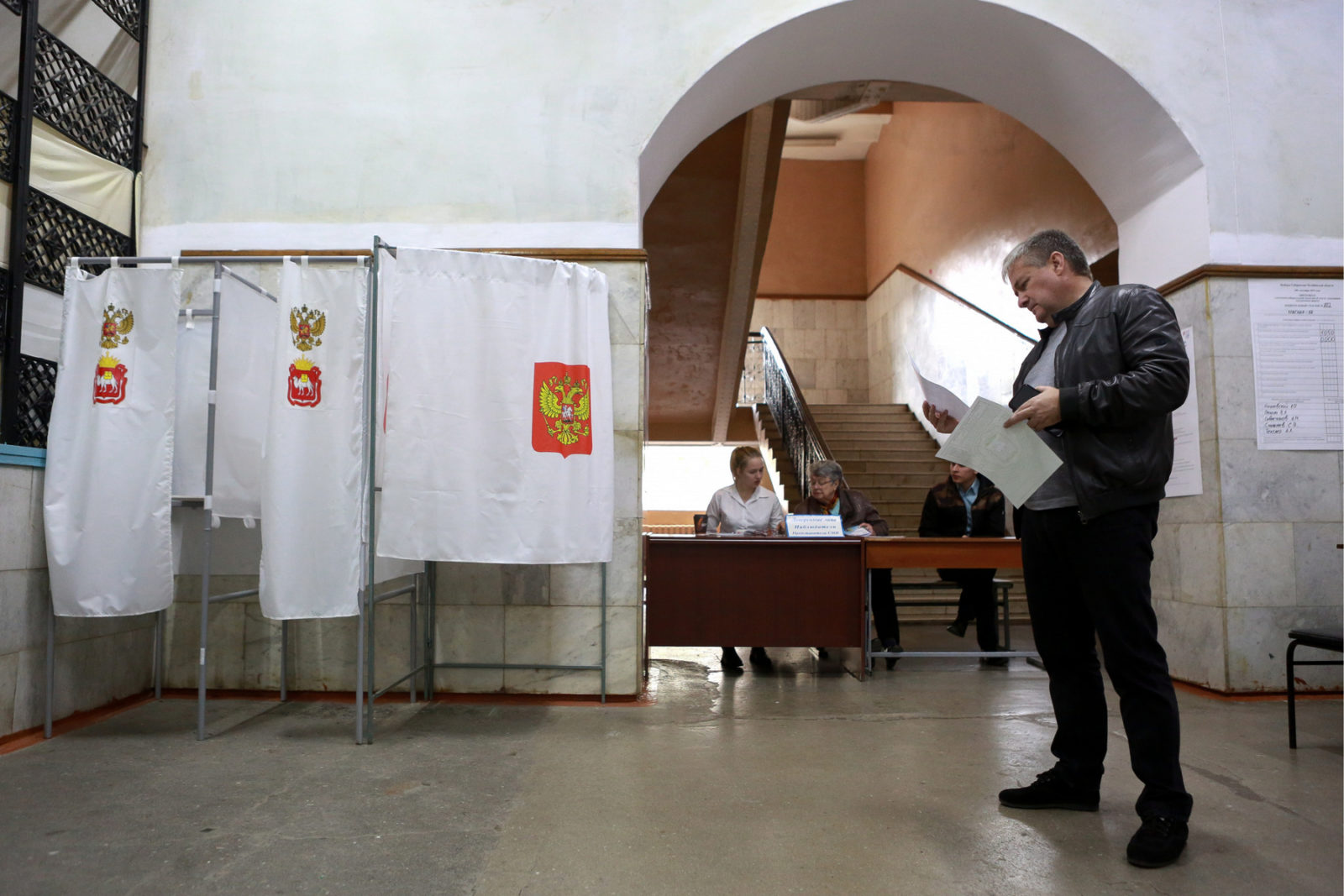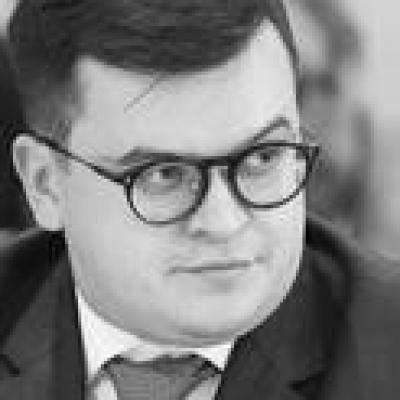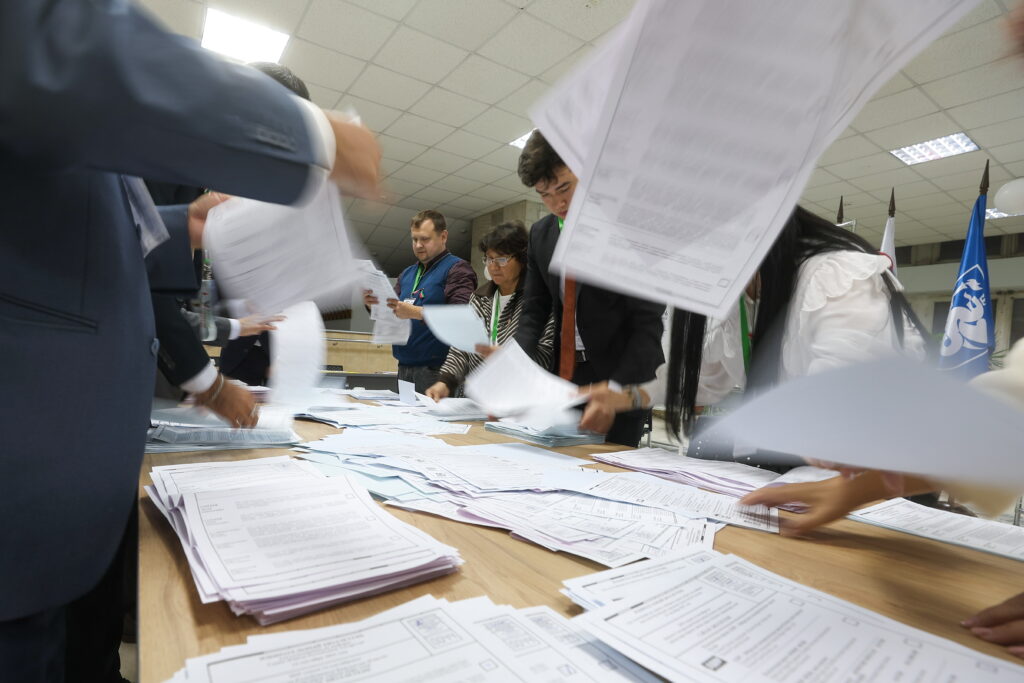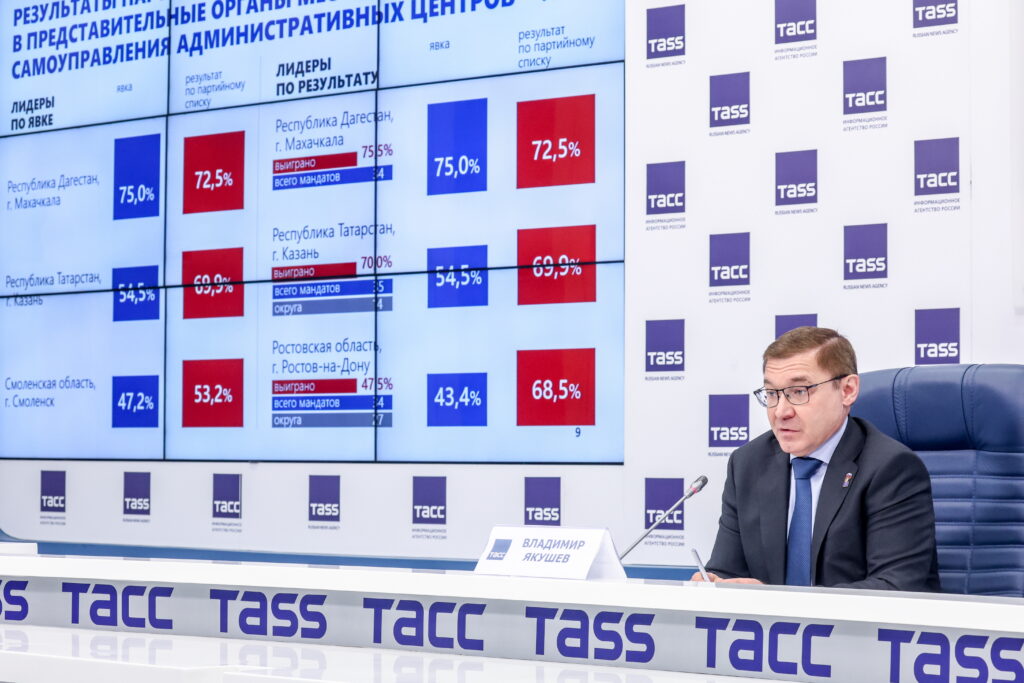On September 8, more than 5 thousand elections on various levels of government, from the smallest village councils to governors and State Duma by-elections, took place across Russia. In total, about 47 thousand posts were open for election, and 56 million citizens had the ability to take part in the elections – more than half of all Russian voters.
Finding some common denominator among all these election campaigns is an extremely difficult task. Despite all the talk about the so-called power vertical, the regional factor is often very significant in Russian elections, so even elections in neighbouring regions are almost impossible to compare (for instance, Kemerovo Oblast and Novosibirsk Oblast), as though they take place in different countries if not different planets.
However, there are still some common features, of course. And it is specifically these commonalities that determine the near future of the national political landscape. However, it often happens that several of the country’s common vectors are multidirectional, so the resultant force is extremely difficult to determine.
Gubernatorial elections as a bureaucratic procedure
On September 8, governors were elected in 16 regions of Russia. After last year’s elections, which ended in runoffs in four regions, one could have expected something similar to happen again. Moreover, the popularities ratings of some of the administration’s candidates caused serious concern among the authorities.
However, in reality, the political field has been so thoroughly “cleaned up” that gubernatorial elections have altogether lost their original public-political meaning, transformed into a purely bureaucratic planned procedure for replacing the top official of the region. In any case, that is how the country’s highest authorities perceive it. For example, in spring 2019, the chairman of the Federation Council, Valentina Matvienko, called the series of governors’ resignations “a planned process” and “normal staff renewal.”
To ensure the “right” candidates would be elected without issue, electoral competition was artificially limited. The so-called “municipal filter” played a key role here: according to electoral law, candidates for the post of governor must first receive the support of deputies and heads of municipalities. To do this, they must collect a fairly large number of signatures, 5-10% of the total number of deputies and municipal heads, which sometimes means having to collect hundreds of signatures from rural deputies scattered across territories the size of a large European country. What is more, each deputy or head can only give a signature for one candidate. In addition, these signatures must be collected in three quarters of all municipalities, something the administration’s candidates actively exploit. With the help of administrative resources, they collect all possible signatures in several districts in just a few days, and thus block ‘undesirable’ candidates from being able to register.
For example, well-known regional deputies representing KPRF were not able to register for elections in Kalmykia, Zabaikalsky Krai, and Vologda Oblast. In Zabaikalsky Krai, a unique situation arose: the acting governor, Aleksandr Osipov, did not run under United Russia, but rather as a self-nominated candidate, while LDPR and A Just Russia refused to put forward their own candidates, and the “municipal filter” blocked the KPRF candidate from registration. As a result, for the first time in modern history, none of the parliamentary parties participated in the election for governor in the region. In their stead, little-known figures from smaller parties were registered as candidates: the regional chair of the All-Russian Society of Disabled People, Elena Krause (Pensioners’ Party), the hunting inspector of LLC Los, Vyacheslav Ushakov (Patriots of Russia), and the business development director of LLC Green World Plus, Yana Shpak (Growth Party). A year ago, in regional parliament elections, United Russia, KPRF and LDPR all received almost the same number of votes (24-28%), A Just Russia received almost 9%, and the Pensioners’ Party got more than 6%. Against this backdrop, the variety of candidates at this year’s gubernatorial elections only testified to the authorities’ fear of real electoral competition. As a result of this “cleanup”, acting governor Osipov won by almost 90%.
Even the largest parliamentary opposition parties depended on signatures from representatives of United Russia when nominating candidates for gubernatorial elections. This forces them to coordinate on their candidate choice with their formal opponents and avoid nominating prominent politicians who actually aim for victory. For example, A Just Russia did not seek to nominate one of its well-known and popular politicians, State Duma deputy Oleg Shein, as a candidate for governor in Astrakhan Oblast. The party also did not nominate any candidates in Zabaikalsky Krai and Chelyabinsk Oblast, even though it traditionally has good prospects in both regions. LDPR did not nominate its most prominent representatives in the gubernatorial elections in Volgograd Oblast, and in Zabaikalsky Krai and Orenburg Oblast, the party refused to participate in the elections. In St. Petersburg, LDPR nominated its Legislative Assembly leader, Oleg Kapitanov, as candidate for governor. On June 25 at a government meeting, he asked the acting governor, Alexander Beglov, for help in getting through the “municipal filter,” but as a reply he received an offer to work in the city administration, which he accepted. Afterwards, the party formally agreed to withdraw its candidate from the election.
Crisis in the party system
Political parties are the key element in a representative democracy: the main mediators between the state and society, the first to feel the growing discontent of citizens, and to formulate programs to overcome political or socio-economic crises. In reality, the party system itself is in a deep crisis in Russia.
According to a survey published by the Levada Center on August 14th, the overall popularity rating of parliamentary parties fell to 51% among Russians. This is largely due to the fact that today, even the largest parties virtually never coordinate with voters and are instead more similar to corporations which sell a sort of franchise to candidates to run in regional elections without collecting signatures.
2019 set a record for the number of self-nominated (45) and self-registered (6) candidates for governor. All the registered self-nominees are administration candidates who consider a United Russia party nomination risky.
In regional legislative assembly and local government elections, this year’s trend towards decreased value of party branding is even more pronounced. This goes for administration candidates most of all, who, amid growing protest sentiments, are trying to distance themselves from the brand of the “party in power”. In regional legislative assembly elections, this led to a significant increase in the share of self-nominated candidates by more than two-fold. At the same time, the share of United Russia candidates has fallen the most, from 18.65% to 13.5% – almost a third. A similar situation can be observed with registration: compared to 2018, the share of successfully registered self-nominated candidates has grown by 2.5 times. In regional administrative center elections, the share of self-nominees is even greater, amounting to a quarter of the total number of candidates.
The situation in other remaining municipal elections is even worse: almost no one except United Russia participated in them at all, despite the huge number of constituents: in local government elections (except for administrative centers) in 2019, candidates were nominated by almost 106 thousand people, including 95 thousand in single-mandate constituencies. While United Russia seeks to nominate candidates for almost all elections (it put up about 42 thousand candidates), all other parties put together put up about one and a half times fewer candidates. Even KPRF, the second most popular party in the country, nominated five times fewer candidates (about 8 thousand) than the “party in power.” Another 20 thousand candidates run as self-nominees.
Many from the major parties who ran in the elections are “artificial” candidates. This is especially true for LDPR, which often runs candidates who are obviously not related to the territory that they are meant to represent if elected.
Political parties’ participation in local elections is one of the most important indicators of their maturity and viability. Firstly, it is at the local level that the majority of problems faced by citizens in their day-to-day are addressed. Secondly, organized participation in the processes at the local level requires a party to have an extensive organizational structure allowing them to monitor local issues, recruit new party members and supporters, and conduct campaigning among citizens at the grassroots level. Without these processes, a party is more like a sign uniting people with political ambitions rather than a real political organization.
The crisis faced by political parties, as the main political players, means that the political crisis that has begun in the country will only deepen.
Results of the elections
The protests in Moscow diverted attention from the election results in the rest of the country, and they provide food for thought. Despite the fact that this time the administration candidates won every the gubernatorial elections without runoffs, the Secretary of the General Council of United Russia Andrei Turchak’s statement on his party’s “home run” in these elections seems overly optimistic for the party bureaucracy.
Even if we leave the way that these gubernatorial election results were achieved in parentheses, all the other elections raise many more questions. If we compare current election results with the results of previous elections in identical local government races (mainly in 2014-2015), we see that in Khabarovsk Krai “United Russia” lost over 44% of the vote in five years and ended up coming only third place, having received two out of 36 seats in the regional parliament. Crimea, Sevastopol, and Altai lost 14-15% each. And this decline is noticeable almost all over the country.
All this comes hand in hand with reports of mass fraud. In St. Petersburg, scandals have developed for over two weeks after the elections, while in Buryatia, the election results led to street protests.
Considering that several counts of ballot stuffing were recorded in Kazan, and voting multiple times, or “cruise” voting, was even reported by a human rights ombudsman in St. Petersburg, Alexander Shishlov, new messages about this can be expected after watching footage from the polling stations.
Observers recorded a large number of reports of voter bribery, coming from Sakhalin, Altai, Primorye, Irkutsk Oblast, Perm Krai, and other regions. Many reports consisted in electoral violations outside the premises (at home). Such violations are often reported where optical scan voting systems are used to minimize the possibility of falsifying voting results. For example, in Tula Oblast, almost 20% of voters who voted did it “at home,” although by law only hospital patients are allowed to use a portable “ballot box”.
So even after a total cleanup on the political field, a crisis in the party system, mass electoral falsifications and traditional pressure on voters, the party in power is no longer getting the results that it once had so recently. Compared to last year, it may seem that the authorities’ situation has somewhat stabilized, but this feeling is misleading since almost all the elections this year had a very low turnout. That is to say that in reality, the election results only reflect the opinion of a small portion of society, and only inasmuch as you can trust the official results.










